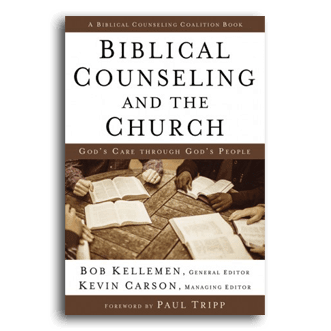⏱️ Estimated Reading Time: 4 min read
At one level, Biblical counseling is not a ministry of the church. It is the DNA of all Christians who are seeking to fulfill the “one another” commands of Scripture. The church, then, should not have a counseling ministry but rather be a counseling ministry. That’s how the more than thirty authors of Biblical Counseling and the Church feel. This brilliant volume is both a philosophical and practical guide to that vision.
The book is broken down into six parts, each focusing on a philosophical or practical dimension to Biblical counseling specifically in the local church context. A few chapters make connections to parachurch and academic settings, but specifically about the local church. The focus on the body is maintained throughout the work.
Part one sets the “vision for the entire church.” Here we see the grand vision of the Biblical Counseling movement presented, along with encouragement and counsel given specifically to pastors. As those who set the vision for their church, Deepak Reju challenges them to see that pastoral care is a primary responsibility of their role, and as such Biblical counseling has a place in their ministry. Kevin Carson and Paul Tautges guide them, then, in chapter four, to see the relationship between preaching and counseling.
Garrett Higbee has written what might be the best chapter in the whole book. In chapter three, Higbee discusses the maturation of the Biblical Counseling movement, arguing for both specialized training and broad-based equipping. As he sees it, we have created an unnecessary gap between discipleship and counseling. He writes:
The “traditional” biblical counseling model has matured. And yet, similar to the season between the period of the early church and the Reformation, the care of souls in the church has become so specialized that the average layperson does not understand how to speak the truth in love. I believe this has created an inadvertent gap between discipleship and counseling, one that has grown as we have emphasized certification and training, both in doctrine and in counseling methods and techniques. (57-58)
His compelling history points to the continued need for growth moving forward.
The book shifts to practical guidance as it turns in part two to the relationship between Biblical counseling and small groups. We are given useful tools for uniting the two, given examples of it through support groups and programs of various kinds and given a fresh vision for this valuable combination. This section was easily the most practical and useful for me. I found lots to chew on and many things to consider as we seek to do a better job of uniting these two discipleship strategies in my own church context. In my opinion, part two is worth the price of the book.
Part four walks us through equipping counselors in the local church. Taking into consideration the various church sizes and contexts, the authors guide us through a practical training program for our congregations. Whether you are large, small, or multicultural, there is guidance in this section.
Part five considers how to use counseling as an outreach. We have seen in my own context the evangelistic value of Biblical counseling. Here we are guiding by practitioners into both vision and implementation of an outreach plan that revolves around the offer of counseling. This is a chapter on missional strategy at one level, and for many will become useful only after they have established the previous pieces of the equation in place.
The book concludes with another look at the history and development of Biblical counseling. In chapter twenty-three Howard Eyrich and Jonathan Holmes give us the perspectives of both seasoned counselors and newcomers to help identify the “legacy and future” of the movement. There’re many benefits in reflecting on our past and forecasting our future.
I loved this book. It is exceedingly useful for pastors as a guide to developing Biblical counseling in our churches, and seeing it embedded in our church DNA. The diversity of authors and voices lend themselves well to avoiding the one-size-fits-all mentality of many similar conversations. The chapters on connecting counseling and small group ministry are priceless and will prove a regular resource for my own work in the local church. Many thanks to Bob Kellemen and Kevin Carson for compiling such a unique and useful volume. I highly recommend Biblical Counseling and the Church to all practitioners and pastors. You will surely find much here to help you in your ministry.



